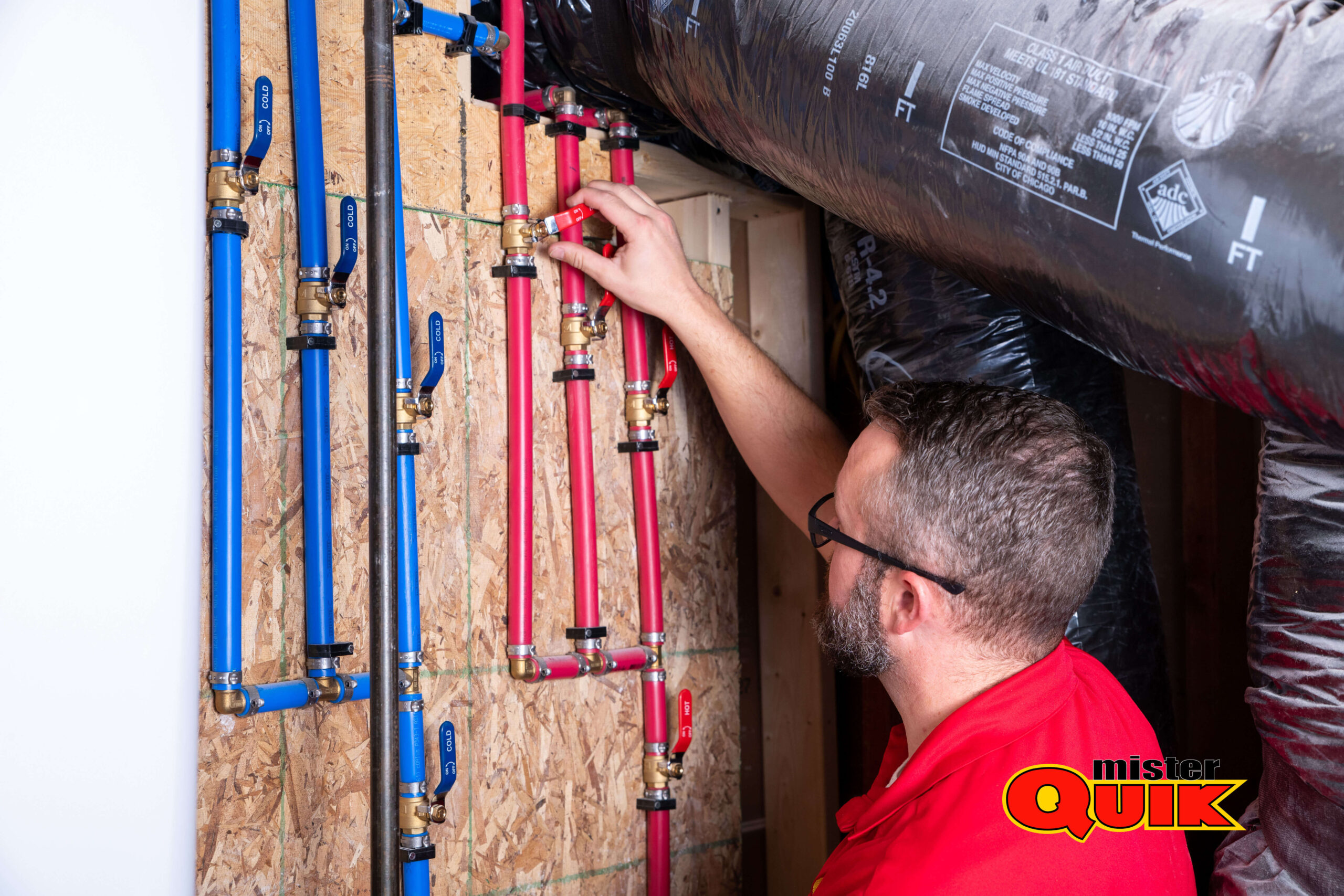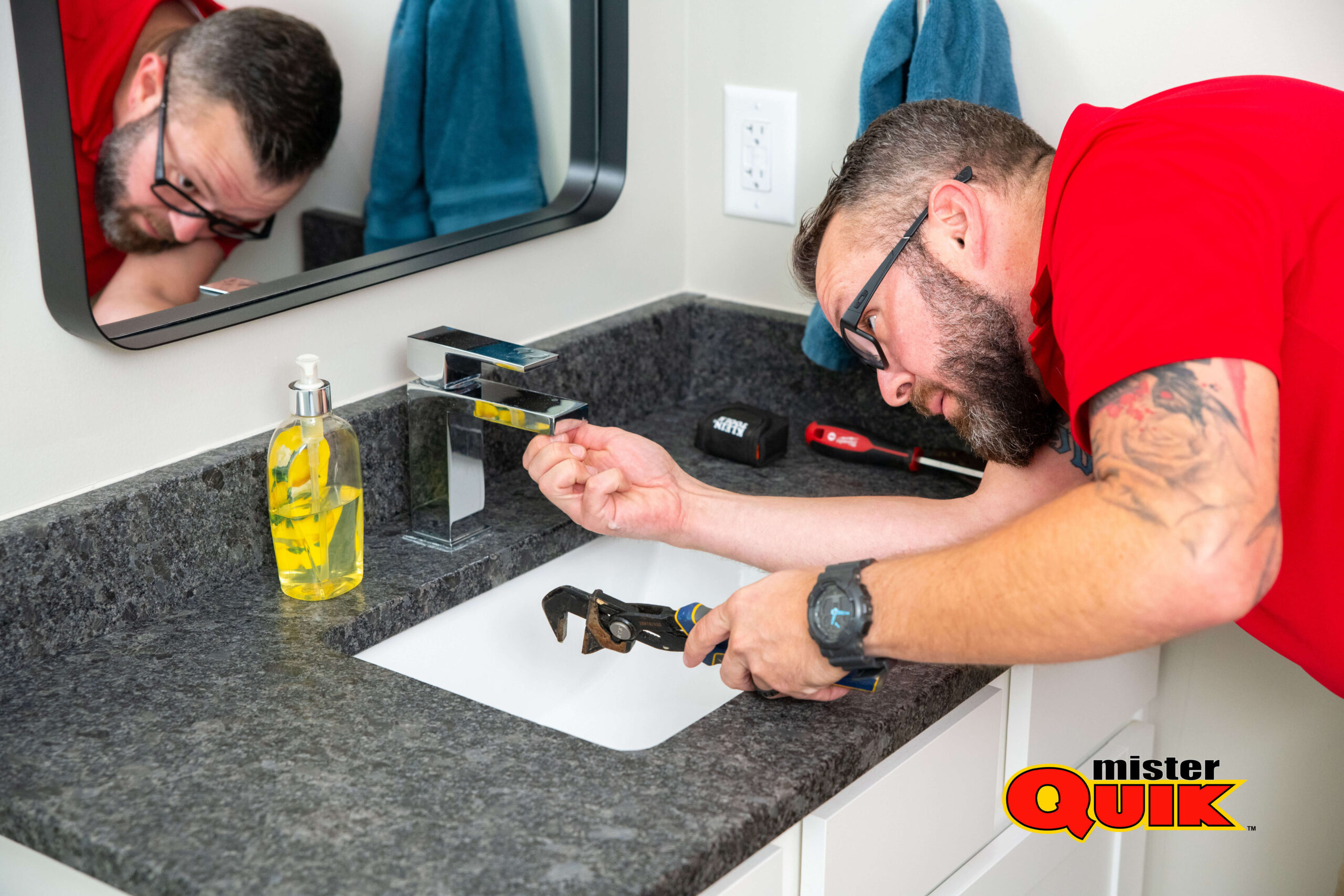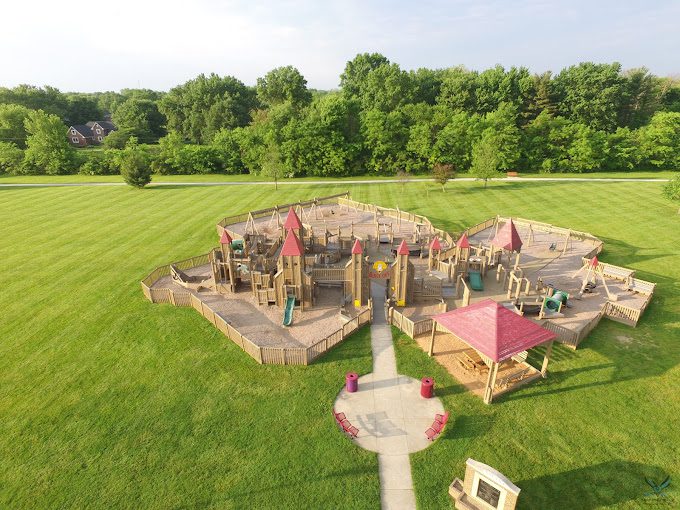Brownsburg No Hot Water

Brownsburg No Hot Water
Experiencing a situation where your heating works but there’s no hot water can be puzzling, but understanding the potential causes can help you address the issue effectively. While it may seem contradictory, several factors could contribute to this problem. Let’s explore some common reasons why you might have no hot water despite your heating system functioning correctly:
- Thermostat Setting: Check if your water heater’s thermostat is set to the desired temperature. Sometimes, it may be accidentally set too low, resulting in lukewarm or cold water despite the heating system working fine.
- Sediment Buildup: Over time, mineral sediment can accumulate at the bottom of your water heater tank, insulating the heating element and preventing it from effectively heating the water. Flushing the tank can help remove sediment and restore hot water production.
- Broken Dip Tube: The dip tube is responsible for directing cold water to the bottom of the tank for heating. If it breaks or becomes dislodged, cold water may mix with the hot water near the top of the tank, resulting in tepid water flowing from the taps.
- Faulty Heating Element: Electric water heaters rely on heating elements to warm the water. If one of these elements malfunctions or burns out, it can lead to insufficient heating or no hot water at all while the heating system continues to operate.
- Pilot Light Issues: For gas water heaters, a malfunctioning pilot light can disrupt the heating process, causing no hot water despite the heating system being functional. Check if the pilot light is lit and consult a professional if it keeps going out or appears weak.
- Pressure Valve Problems: The pressure relief valve on your water heater helps regulate pressure inside the tank. If it’s faulty or malfunctioning, it could lead to irregular heating or no hot water. Inspect the valve for leaks or signs of damage and replace it if necessary.
- Plumbing Blockages: Blockages in the hot water pipes or plumbing fixtures can restrict the flow of hot water, resulting in reduced or no hot water supply despite the heating system’s operation. Inspect pipes for clogs or obstructions and clear them to restore proper water flow.
- Electrical Issues: Electrical problems in the water heater or the wiring supplying power to it can disrupt its operation, leading to no hot water. Ensure that the heater is receiving power and check for tripped circuit breakers or blown fuses that may need resetting or replacement.
- Aging Water Heater: If your water heater is reaching the end of its lifespan, it may struggle to heat water efficiently or may fail altogether, resulting in no hot water despite the heating system working. Consider replacing an older unit with a more energy-efficient model to avoid future issues.
- Insufficient Capacity: In households with high hot water demand, a water heater with insufficient capacity may struggle to keep up, resulting in periods of no hot water, especially during peak usage times. Upgrading to a larger or more robust water heater can address this issue.
In conclusion, troubleshooting a situation where your heating works but there’s no hot water requires a systematic approach to identify and address the underlying causes effectively. Trust Mister Quik Home Services in Brownsburg to provide expert guidance and solutions tailored to your specific situation, ensuring your comfort and convenience are restored promptly.
Moen Delta Faucets Kohler American Standard Toto Mansfield Plumbing Price Pfister Peerless Lochinvar Rinnai Navien Grohe Speakman Gerber Whirlpool Easywater AO Smith Rheem Bradford White Culligan Kinetico Sterling Brizo Gastite Zoeller Glentronics Zurn Grundfos Pumps Blanco Bocchi Bradley Company Brasscraft Manufacturing Company Kerox, Ltd. Dornbracht Americas Inc. Falcon Water Technologies, LLC Fisher Manufacturing Company Fluidmaster, Inc. Hansgrohe, Inc. Haws Corporation LAUFEN Schweiz AG Lavelle Industries, Inc. LIXIL LSP Products Group LLC Marcone Plumbing Masco Corporation Neoperl, Inc. Reliance Worldwide Corporation Sloan Valve Company Sprite Industries T&S Brass and Bronze Works, Inc. Uponor Viega LLC Water Pik, Inc. WCM Industries, Inc.
Axor Decolav Dreamline Showers DXV Fairmont Design Fortis Franke Geberit Plumbing Ginger Graff HydroSystems Infinity Drains In-Sink-Erator Jacuzzi James Martin LinkaSink MTI Native Trails Newport Brass PROFLO Rohl Signature Hardware Strasser Swanstone Thompson Traders Watermark Zucchetti Alfi ANZZI Altair AquaPure Avanity Avano Azzuri Bella CORE Bemis Brondell CRAFT + MAIN California Faucets Chicago Faucets Clarke Cutler Kitchen and Bath Duravit EAGO Eccotemp Eemax Fresca Giagni Houzer Jones Stephens Kaldewei Kingston BrassKraus Liberty Pumps Little Giant MediTub Nameeks OVE Decors Pulse Purewater Baths Sagehill Designs Saniflo Stiebel Eltron Swiss Madison Symmons Ultra Faucets VIGO WS Bath Collections Waste King Watts Whitehaus
Hot Water Not Working But Cold Is
Experiencing a situation where your hot water isn’t working while cold water flows just fine can be frustrating and inconvenient. Several potential issues could be causing this problem, each requiring a different solution. Here’s a comprehensive guide to help you understand why your hot water isn’t working while cold water is:
Ensure that the temperature setting on your water heater hasn’t been accidentally adjusted to a lower temperature, causing insufficient heating.
For gas water heaters, check if the pilot light is lit. If it’s out, relighting it according to the manufacturer’s instructions may resolve the issue.
If you have an electric water heater, a malfunctioning heating element could be the culprit. Testing and replacing the faulty element may be necessary.
Check the circuit breaker or fuse box to see if the breaker has tripped or the fuse has blown, cutting off power to the water heater.
Accumulated sediment in the water heater tank can insulate the heating element or burner, hindering its ability to heat water effectively. Flushing the tank can help resolve this issue.
A malfunctioning thermostat may not accurately regulate the water temperature, leading to inadequate heating. Testing and replacing the thermostat may be required.
Check for any leaks, blockages, or restrictions in the hot water pipes leading from the water heater to your faucets or fixtures.
If your home has a pressure balancing valve installed for temperature control, it may be malfunctioning and preventing hot water flow.
If your water heater is old, it may be nearing the end of its lifespan and experiencing internal issues that affect its ability to heat water efficiently.
In cold climates, frozen pipes leading to or from the water heater can obstruct water flow, resulting in a lack of hot water.
In conclusion, troubleshooting the issue of hot water not working while cold water is flowing involves checking various components of your water heating system. If you're unable to identify or resolve the problem on your own, contact Mister Quik Home Services in Brownsburg for professional assistance and reliable solutions.
The absence of hot water from your pipes could stem from various issues within your water heating system. Common causes include a malfunctioning heating element or thermostat in your water heater, sediment buildup hindering water flow, a broken dip tube affecting water distribution, or even a power supply issue if your heater relies on electricity or gas. Troubleshooting these components or seeking assistance from a professional plumber can help diagnose and rectify the problem, ensuring a consistent supply of hot water throughout your home.
If your hot water isn’t functioning while the cold water is, several potential issues could be at play. Firstly, there might be a problem with the heating element or thermostat in your water heater, necessitating inspection or repair. Alternatively, sediment buildup in the hot water tank can obstruct the heating mechanism, requiring flushing or maintenance. It’s also possible that there’s a malfunction in the plumbing system specifically affecting the hot water supply, which would necessitate investigation by a plumber to diagnose and rectify the issue.
The sudden absence of hot water can be attributed to various factors such as a malfunctioning water heater, a tripped circuit breaker, a faulty thermostat, or sediment buildup in the tank. Checking the pilot light (if applicable) and ensuring the thermostat is set correctly can help troubleshoot the issue. Additionally, inspecting for leaks or pipe blockages can offer further insight into the problem. Regular maintenance and timely repairs can prevent such disruptions in the future.
When troubleshooting a lack of hot water, start by examining the water heater’s thermostat settings to ensure they are appropriately configured. Check for any tripped circuit breakers or blown fuses that may be disrupting power supply to the heater. Inspect the heating elements for signs of damage or malfunction, such as corrosion or a broken connection. Additionally, assess the temperature-pressure relief valve for potential leaks or blockages. Finally, consider factors like sediment buildup in the tank, which can impede heating efficiency, and ensure the pilot light (if applicable) is ignited and functioning correctly.
If turning your tap to hot water yields no flow, several issues could be at play. Firstly, check if the hot water valve is fully open. If it is, there may be a problem with the hot water heater, such as a malfunctioning heating element or a lack of sufficient hot water supply. Additionally, sediment buildup or a blocked pipe could be restricting the flow of hot water. It’s advisable to inspect these components or seek assistance from a plumber to diagnose and address the issue effectively.
No Hot Water Who to Call

Experiencing no hot water can disrupt your daily routine and indicate underlying issues with your water heater. Knowing who to call for help is crucial in getting your hot water restored quickly. Here’s a detailed guide to help you understand the potential causes of no hot water and who to call for assistance:
- Check the thermostat settings on your water heater to ensure they are correctly adjusted.
- Inspect the circuit breaker or fuse box to see if a tripped breaker or blown fuse is causing the issue.
- Test the pressure relief valve on your water heater to ensure it is functioning correctly.
- Look for signs of leaks or corrosion around your water heater, as these can indicate a potential problem.
- Consider the age of your water heater, as older units may require repairs or replacement due to wear and tear.
- If you have a gas water heater, check that the pilot light is lit and the gas supply valve is open.
- Insulate your hot water pipes to prevent heat loss and improve energy efficiency.
- Flush your water heater tank to remove sediment buildup that can affect performance.
- If you’ve tried troubleshooting on your own and still have no hot water, it’s time to call a professional plumber.
- Trust experienced and reputable plumbing professionals like Mister Quik Home Services in Brownsburg to diagnose and resolve the issue promptly.
In conclusion, when facing the frustration of no hot water, knowing who to call for help can make all the difference. Trust Mister Quik Home Services in Brownsburg to provide expert assistance and restore your hot water supply efficiently.
No Hot Water in House All of a Sudden
Experiencing a sudden loss of hot water in your house can be inconvenient and frustrating, but understanding the potential causes can help you address the issue effectively. Here’s what you need to know:

A tripped circuit breaker or blown fuse in the electrical panel can disrupt power to the water heater, resulting in no hot water.

For gas water heaters, a malfunctioning pilot light or ignition system can prevent the burner from heating the water.

Faulty thermostats can cause the water heater to malfunction, leading to inadequate heating or no hot water at all.

Accumulation of sediment or mineral deposits in the tank can insulate the heating element or burner, reducing its efficiency and resulting in lukewarm or no hot water.

A leaking PRV can release excess pressure from the water heater, causing a decrease in hot water availability.

Over time, water heaters can deteriorate, leading to component failures or inefficiencies that result in no hot water.

Problems with the gas supply line, such as leaks or blockages, can prevent the water heater from receiving fuel, resulting in no hot water

Insufficient water supply due to a closed valve, main water line issues, or municipal supply problems can result in no hot water.

Leaks, clogs, or damage to the plumbing system, including hot water pipes, can disrupt the flow of hot water throughout the house.

Extreme weather conditions, such as freezing temperatures or power outages, can impact the operation of the water heater and result in no hot water.
In conclusion, diagnosing the root cause of sudden hot water loss requires careful inspection and troubleshooting to identify the underlying issue. Trust Mister Quik Home Services in Brownsburg to provide expert assistance in resolving hot water problems promptly, restoring comfort and convenience to your home.
No Hot Water After Plumbing Repair
Experiencing no hot water after plumbing repair can be frustrating, but understanding the possible causes can help resolve the issue efficiently. Several factors could contribute to this problem, requiring careful inspection and troubleshooting to identify the root cause. Here’s a detailed guide to help you navigate through the potential reasons behind no hot water after plumbing repair:
- Incorrect Installation:
If the plumbing repair involved components like water heaters or pipes, incorrect installation or improper connections could lead to hot water issues.
Check if all connections are securely tightened and pipes are correctly aligned.
Ensure that any replaced components, such as water heaters or valves, are installed according to manufacturer instructions.
- Air Pockets:
Air pockets can get trapped in the plumbing system during repairs, blocking the flow of hot water.
Bleed air from the pipes by opening faucets and allowing water to flow until a steady stream is achieved.
If the issue persists, try flushing the water heater to remove any air pockets trapped inside.
- Thermostat Settings:
Changes made during plumbing repair could affect the thermostat settings of water heaters, leading to inadequate heating.
Check the thermostat settings on the water heater and adjust if necessary to ensure it’s set to the desired temperature.
Allow time for the water heater to heat up after adjustments, as it may take a while for the water to reach the desired temperature.
- Electrical Issues:
For electric water heaters, electrical problems like tripped circuit breakers or faulty heating elements could result in no hot water.
Check the circuit breaker panel to see if any breakers related to the water heater are tripped and reset them if needed.
If the problem persists, inspect the heating elements in the water heater for signs of damage or malfunction and replace if necessary.
- Water Heater Damage:
Plumbing repairs may inadvertently cause damage to the water heater, affecting its ability to heat water effectively.
Inspect the water heater for leaks, corrosion, or other visible signs of damage that could impact its performance.
If damage is detected, contact a professional plumber to assess the situation and recommend repair or replacement options.
In conclusion, experiencing no hot water after plumbing repair can be attributed to various factors, including incorrect installation, air pockets, thermostat settings, electrical issues, water heater damage, pressure issues, pipe blockages, mixing valve problems, and insufficient insulation. By understanding these potential causes and following the troubleshooting steps outlined above, you can identify and resolve the issue effectively, restoring hot water to your home. Trust Mister Quik Home Services in Brownsburg to provide expert assistance and reliable solutions for all your plumbing concerns.
Is No Hot Water a Plumbing Issue?
Experiencing a lack of hot water can be frustrating, but understanding whether it’s a plumbing issue is essential for effective troubleshooting. Let’s explore the potential causes and solutions:
A malfunctioning water heater, whether gas or electric, is a common culprit for no hot water.
For gas water heaters, a blown-out pilot light or faulty thermocouple can result in no hot water.
Sediment accumulation in the water heater tank can insulate the heating element or burner, reducing hot water production.
Incorrect thermostat settings or a malfunctioning thermostat can lead to inadequate heating and no hot water.
Leaks in hot water supply pipes can result in reduced water pressure and ultimately no hot water delivery.
Faulty pressure-reducing valves, mixing valves, or shut-off valves can disrupt the flow of hot water to fixture
Issues with the main water supply line, such as a shut-off valve or water meter problem, can affect hot water distribution.
Blockages caused by debris, mineral buildup, or pipe corrosion can impede hot water flow, resulting in no hot water.
In colder climates, frozen pipes can prevent the flow of hot water, leading to no hot water at fixtures.
Electrical issues such as a tripped circuit breaker, blown fuse, or wiring problem can affect electric water heaters.
In conclusion, determining whether no hot water is a plumbing issue requires careful inspection and diagnosis by a qualified technician. Trust Mister Quik Home Services in Brownsburg to identify the root cause of your hot water problem and provide prompt and reliable solutions.
Troubleshoot Checklist:
- Ensure all connections are secure and aligned properly.
- Confirm replaced components are installed according to manufacturer instructions.
- Bleed air from pipes by opening faucets until a steady stream is achieved.
- Consider flushing the water heater to remove trapped air pockets.
- Check thermostat settings on the water heater and adjust if needed.
- Allow time for the water heater to heat up after adjustments.
- Check the circuit breaker panel for tripped breakers and reset if necessary.
- Inspect heating elements for damage or malfunction and replace if needed.
- Look for leaks, corrosion, or visible damage on the water heater.
- Contact a professional plumber to assess and recommend repair or replacement options.









